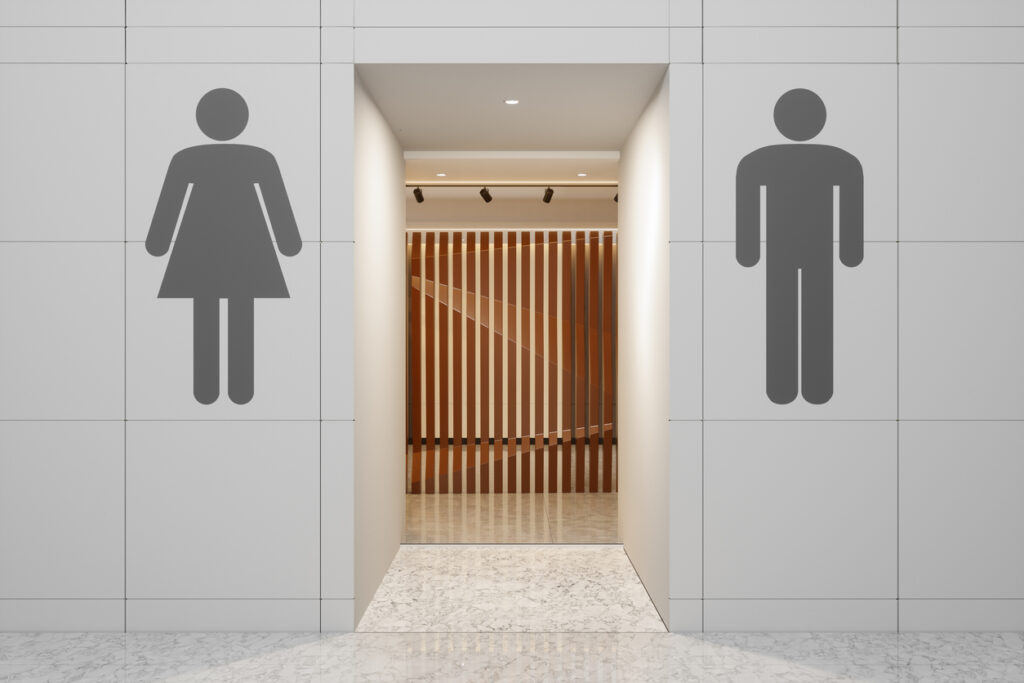What was the judgment?
An area that has caused significant debate in recent times relates to the Equality Act 2010 (EqA 2010) and the interpretation “sex, “man” and “woman”, particularly in relation to trans people.
This was considered by the Supreme Court in For Women Scotland Ltd v Scottish Ministers [2025] UKSC 16. The court held that the definitions of “woman”, “man” and “sex” in the EqA 2010 refer to biological sex. The definition of “woman” in the EqA 2010 therefore excludes trans women holding a gender recognition certificate (GRC), whom the court held remain protected under the protected characteristic of gender reassignment, or in relation to their biological sex (or perceived biological sex).
The judgment has implications for many organisations, including:
- Workplaces
- Services that are open to the public, such as hospitals, shops, restaurants, leisure facilities, refuges and counselling services
- Sporting bodies
- Schools
- Associations (groups or clubs of more than 25 people which have rules of membership)
The Equality and Human Rights Commission (EHRC) interim update
THE EHRC has published an interim update, which has since been amended, which provides its initial interpretation of key points in the court’s judgment. It states that:
References to the word “sex” in the EqA mean biological sex. This means that, under the EqA:
- A “woman” is a biological woman (a person born female).
- A “man” is a biological man (a person born male).
- If somebody identifies as transgender, they do not change sex for the purposes of the EqA, even if they have a GRC.
In relation to workplaces, requirements are set out in the Workplace (Health, Safety and Welfare) Regulations 1992. These require suitable and sufficient facilities to be provided including toilets and sometimes changing facilities and showers. Toilets, showers and changing facilities may be mixed-sex where they are in a separate room lockable from the inside. Where changing facilities are required under the regulations, and where it is necessary for reasons of propriety, there must be separate facilities for men and women or separate use of those facilities such as separate lockable rooms
It is not compulsory for services that are open to the public to be provided on a single-sex basis or to have single-sex facilities such as toilets. These can be single-sex if that is a proportionate means of achieving a legitimate aim (and other conditions in the EqA are met). However, it could be indirect sex discrimination if the only provision is mixed sex.
In workplaces and services that are open to the public, where separate single-sex facilities are lawfully provided:
- Transgender women should not be permitted to use the women’s facilities and transgender men should not be permitted to use the men’s facilities, as this will mean that they are no longer single sex facilities and are open to all users of the opposite sex.
- In some circumstances, the law also allows transgender women not to be permitted to use the men’s facilities, and transgender women not to be permitted to use the women’s facilities. However, the guidance does not state what these “circumstances” are.
- Where facilities are available to both men and women, transgender people should not be put in a position where there are no facilities for them to use.
- Where possible, mixed sex toilet, washing or changing facilities in addition to single sex facilities should be provided.
It is important to bear in mind that the EHRC Update is interim guidance and does not change the law in any way. On 20 May 2025, the EHRC opened a consultation on an updated Code of Practice for services, public functions and associations. This closed on 30 June 2025, and we understand that the EHRC aims to submit the final Services Code to the government by the end of July. No indication has been given of when the EHRC might update the Code of Practice on Employment.
What does this mean for employers?
Barclays was one of the first companies to announce a change to its bathroom policy following the court’s decision. It has announced that it will prohibit trans women from using female bathrooms in its buildings. The bank has not clarified whether it will also be offering mixed facilities.
Although much of the discussion of the court’s ruling centres on the use of toilet facilities, the implications are far more widespread and will affect other single-sex services (such as changing rooms, hospital wards), communal accommodation, the operation of single-sex associations and charities, women’s participation in sport, and the armed forces.
The interim guidance does not address many of the difficult issues that organisations are likely to face as a result, such as how to communicate and enforce revised policies on single-sex spaces while balancing and respecting the rights, safety and dignity of all those who are affected.
Employers keen to minimise their risk of successful discrimination claims are therefore guided to ensure that, where facilities are mixed, that there are separate rooms lockable from the inside.
However, employers may wish to take some time to consider their position before making a definitive response. It would seem sensible to wait until the conclusion of EHCR’s consultation on its Services Code.
Employers should not forget that transgender people remain protected from all forms of discrimination and harassment under the EqA. The court was clear in its view that its judgment does not undermine this, but some of the practical implications are not easy to reconcile.
However employers choose to approach this issue, they should engage with all protected groups who are potentially affected by this decision to offer reassurance that their needs will continue to be accommodated.
If you have any queries about this article, please contact a member of the employment team.








